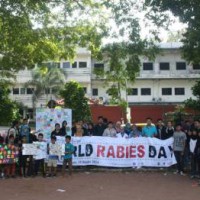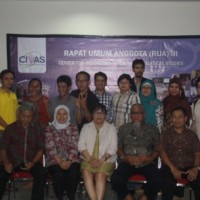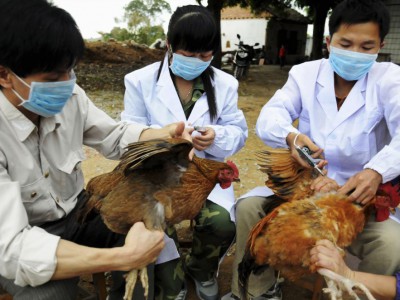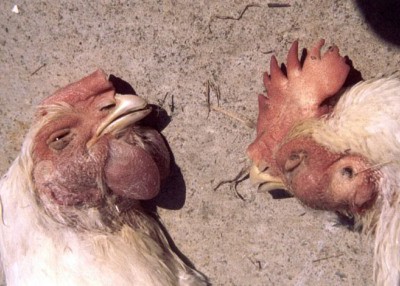Jembrana Alert for Cattle Farmers
Tuesday, 10 February 2015
DUMAI – In response to recent Jembrana outbreaks in several districts in Riau which caused high mortality in Balinese cattle and devastating economic loss to farmers, Head of Dumai City Livestock, Fisheries and Marine Services, Ir. H. Syafrizal MSc calls out to local cattle farmers to watch out and respond quickly to possible disease incidences.
“You do it by recognizing the clinical signs of this disease and how to prevent it. Also, report to your local veterinarian if your Balinese cattle are sick with symptoms consistent to Jembrana,” said Syafrizal.
Jembrana was recently introduced to Riau Province, including Dumai. Hence it could cause high mortality if not prevented. “In Dumai city we have not found large scale mortality due to this disease and hopefully it never happens,” he added.
Syafrizal stressed the importance of hard work and collaboration between farmers, veterinarians and related agencies in eradicating this disease. Jembrana itself, said Dr. Fajar Riyayati, Head of the Dumai City Animal Health Center Technical Unit, is caused by a lentivirus and it only affects Balinese cattle and its crossbreeds.
“Infected Balinese cattle will exhibit specific symptoms, i.e. swelling of shoulder (prescapularis) and hind leg lymph nodes. Severe progression of the disease is marked by bloody diarrhea and bloody discharges on the skin (akin to bloody sweat), followed by death. The disease is spread by vectors, i.e. Tabanus sp. flies and mosquitoes or direct contact with body fluids from infected animals. Case fatality rate is 98%,” Syafrizal explained.
Head of Animal Health Section, Dr. M. Rizqi Mubarok added, preventive measures have been taken since disease introduction to Dumai was known by strengthening animal movement control at checkpoints and entry/exit points to the city.
Also, Syndromic Surveillance was conducted to all Balinese cattle reported to be sick. “Thankfully everything is still under control at the moment,” said Syafrizal.
Jembrana could not be treated, but could be prevented by controlling vectors through maintaining sanitation and spraying pens with insecticides, isolation of sick animals and vaccination of Balinese cattle.
Starting January, the Livestock, Fisheries and Marine Services will selectively vaccinate Balinese cattle in Dumai city. This campaign will be carried out until the disease [in surrounding areas] is controlled (Ery).
Source: Dumai Pos











